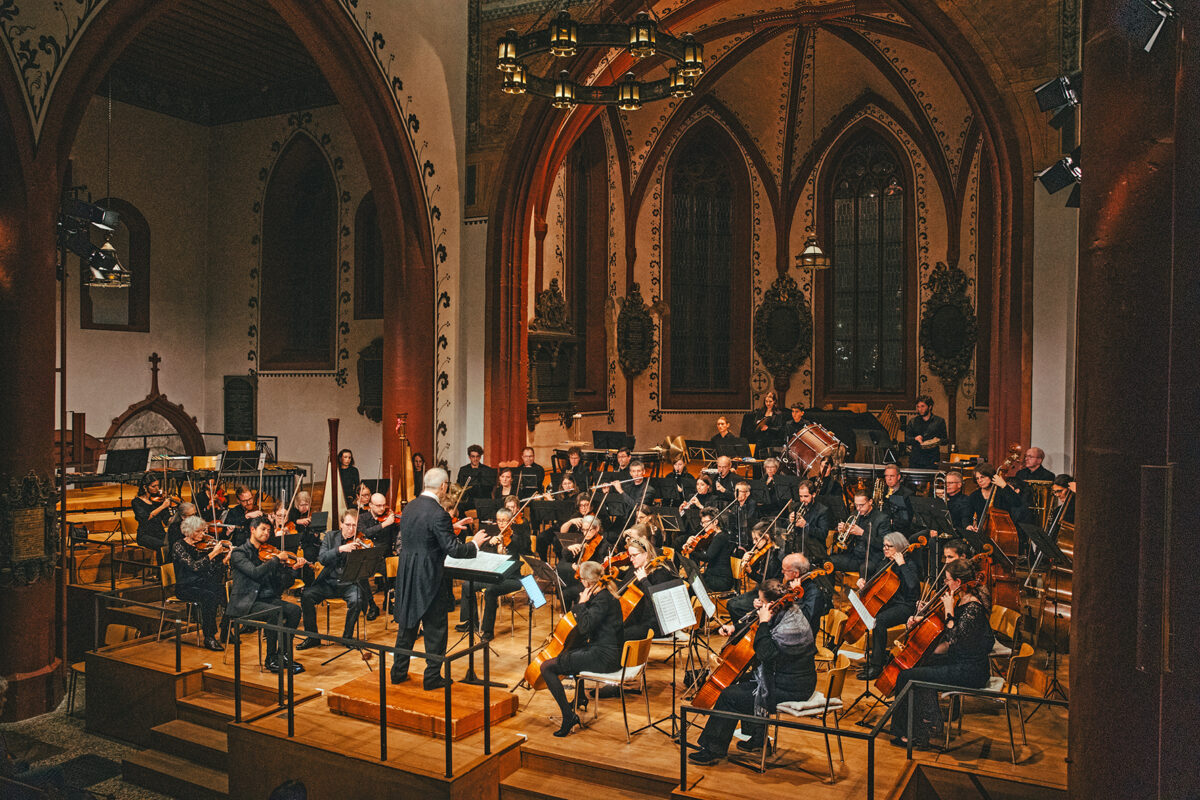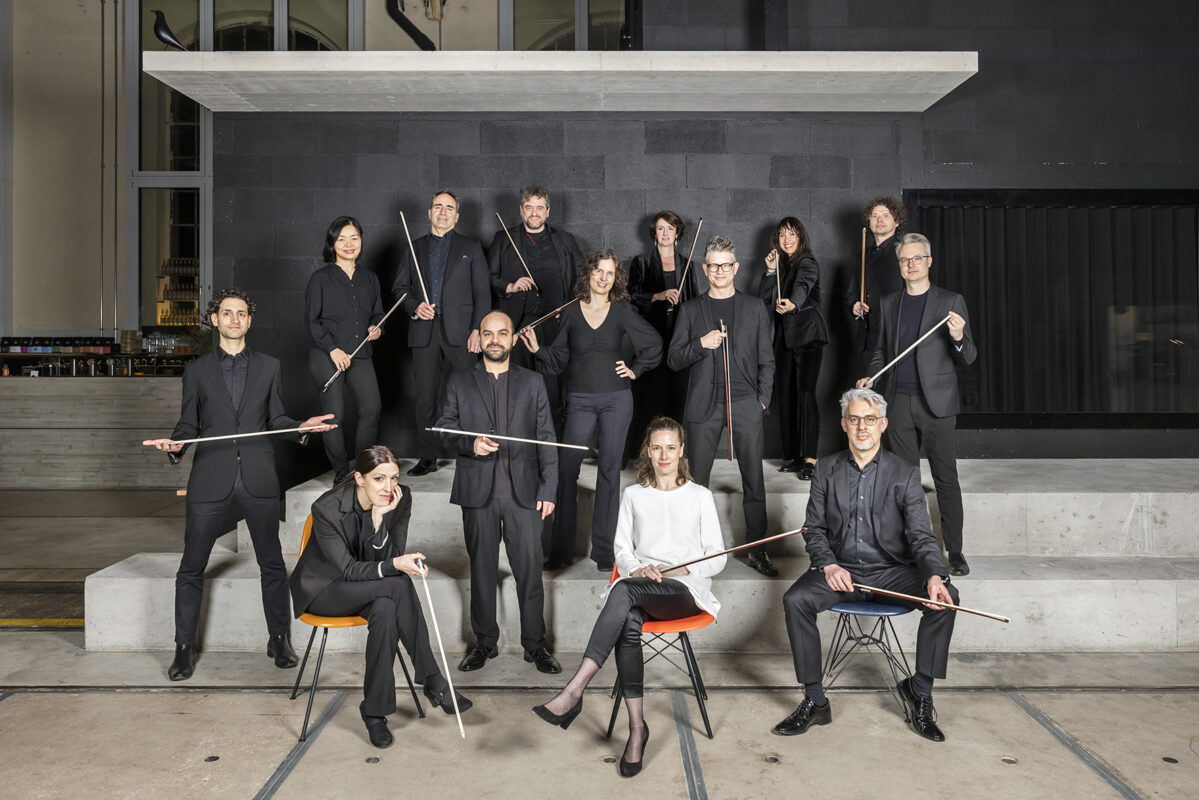Basel Martinů Festival
After a two-year Covid-related break, this year's edition offered, among other things, an encounter with the work of the important Czech composer Kabeláč, who is hardly known in this country.
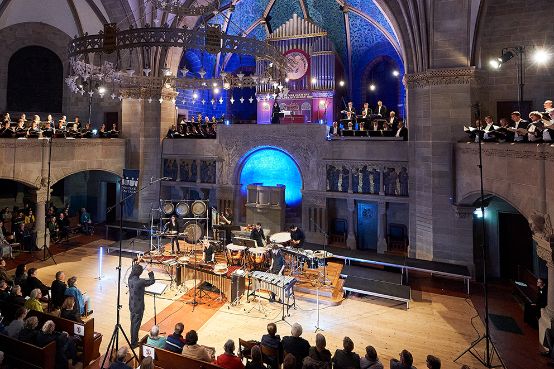
Since their beginnings in 1995, the Martinů festival days has established itself as an integral part of Basel's musical life. At their core, they are committed to cultivating and disseminating the large and diverse oeuvre of Bohuslav Martinů, who lived as a guest of Paul Sacher on the Schönenberg in Pratteln near Basel from 1956 before he died in Liestal in 1959. Under the artistic direction of the pianist Robert Kolinsky has succeeded in attracting renowned artists to the festival with its varied programming off the beaten track. It is probably these two consistently pursued qualities that have given the festival a reputation far beyond Basel in recent years, as evidenced not least by the high-profile honorary patronage of Federal Councillor Alain Berset and Slovakian President Zuzana Čaputová.
-
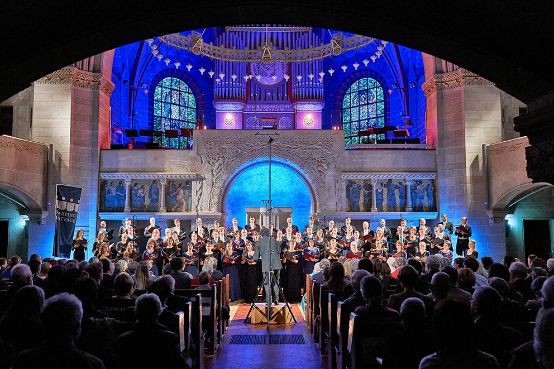
The Zürcher Sing-Akademie together with the Ukrainian Radio Choir in the Kulturkirche Paulus in Basel
Miloslav Kabeláč takes center stage
-
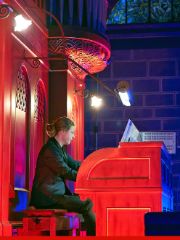
Organist Sebastian Heindl
An exciting counterpoint to Martinů in this year's program was the work of the composer and conductor Miloslav Kabeláč (1908-1979), which is probably little known in this country outside of connoisseur circles. The central piece of the opening concert on October 23 in the Paulus Cultural Church was his eighth symphony Antiphons op. 54 for soprano, mixed choir, percussion instruments and organ. Composed between 1969 and 1970 on texts from the Old Testament, it is an accusatory reaction to the invasion of Czechoslovakia by Warsaw Pact troops in 1968 and the suppression of the reform efforts of the Prague Spring. A harsh, extended-modal tonal language, strong rhythmic impulses and dynamic extremes characterize the work, which is divided into five movements and four interludes. The performance of the extremely demanding soprano part by Aphrodite Patoulidou; impressive in precision and presence the realization of the percussion parts by members of the Percussions de Strasbourgthe same ensemble that performed the world premiere in Strasbourg in 1971. The coming together of the Zurich Singing Academy and the Ukrainian Radio Choir - whose presence lent the subject matter an oppressive topicality - succeeded just as brilliantly here as in Martinů's Four songs about Mary for mixed choir H 235 and The mountain of the three lights for men's choir and organ H 349. The German organist also shone on this evening. Sebastian Heindl in Kabeláčs Two fantasies op. 32 and Martinů's Vigil H 382. The transparency and richness of color that the organist, who was born in 1997 and was the youngest finalist to win the renowned Longwood Gardens Organ Competition in 2019 and was appointed church musician of the Kaiser Wilhelm Memorial Church in Berlin in July, was able to present and illuminate on the organ of the Pauluskirche, which is ideally equipped for the repertoire of the 19th and 20th centuries, was nothing less than sensational.
-
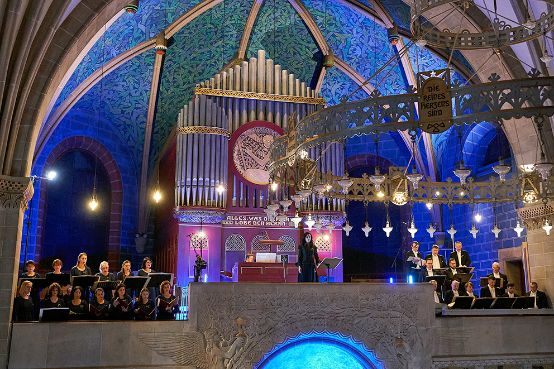
The soprano Aphrodite Patoulidou shone in Miloslav Kabeláč's "Antiphons"
From fairy to movie
In addition to a concert with large ensembles, the Martinů Festival traditionally includes a chamber music concert, a cinema event, a jazz concert and a family concert. The latter, inspired by the fairy tale Bětuška and the forest fairy (Božena Nĕmcová ), discover a different side of Kabeláč; the program included Dětem op. 22 (Small orchestral suite for children) the suite Modré Nebe (Blauer Himmel) op. 19a for children's choir and orchestra, chamber works by Martinů (Nonet No. 2 H 374 and Serenade No. 3 H 218) and the Kinderlieder H 184bis (performers: Ensemble le raid merveilleux, children from the Insel primary and orchestra school; Stefano Mariani, musical director). The jazz concert on October 30 at Bird's Eye (Martina Barta, vocals; Matti Klein, piano; Niklas Lukassen, bass; Genius Wesley, drums) was dedicated to the work of the legendary song composer Burt Bacharach (born 1928), who toured with Marlene Dietrich in the 1950s and studied with Martinů, among others. Martinů's biography was the focus of the film shown at Stadtkino Basel on November 1 My life with Bohuslav Martinů (Director: Jakub Sommer).
Finally, the chamber concert on November 6 in the Hans-Huber-Saal with Steven Isserlis, cello, and Connie Shih, piano, presented two discoveries: the world premiere of Kabeláč's manuscripted Three pieces for violoncello solo and the Deux ritournelles pour violoncelle et piano op. 25 by the highly talented Czech composer, conductor and Martinů pupil Vítězslava Kaprálová (1915-1940), who died young. Alongside Martinů's Sonata for cello and piano No. 1 H 277 continued Schumann's Adagio and Allegro for violoncello and piano op. 70 on the program.
The writer attended the opening concert Mene Tekel on October 23 at the Kulturkirche Paulus, Basel.
Further information can be found at www.martinu.ch






